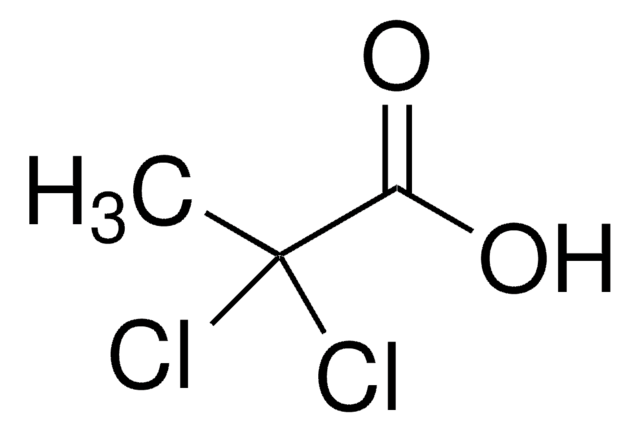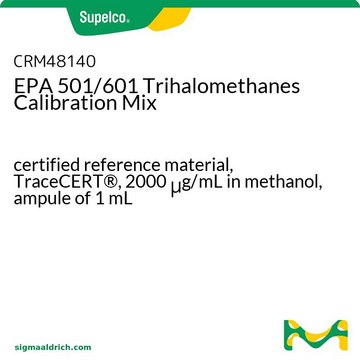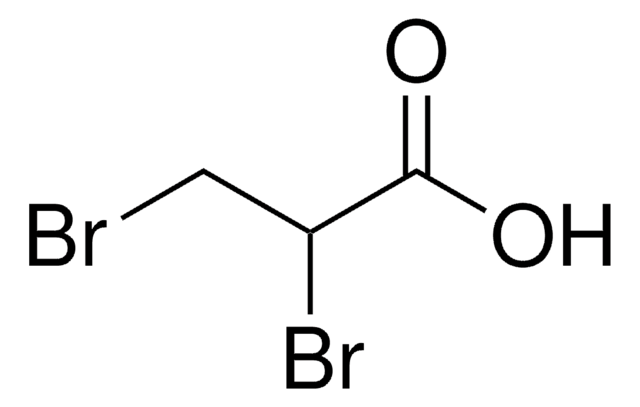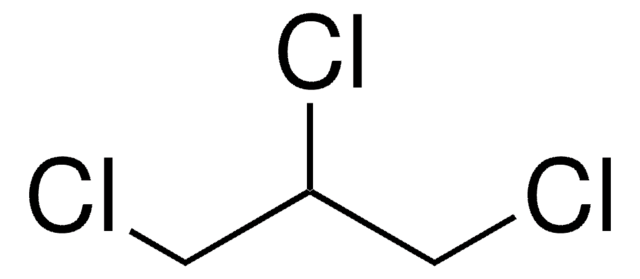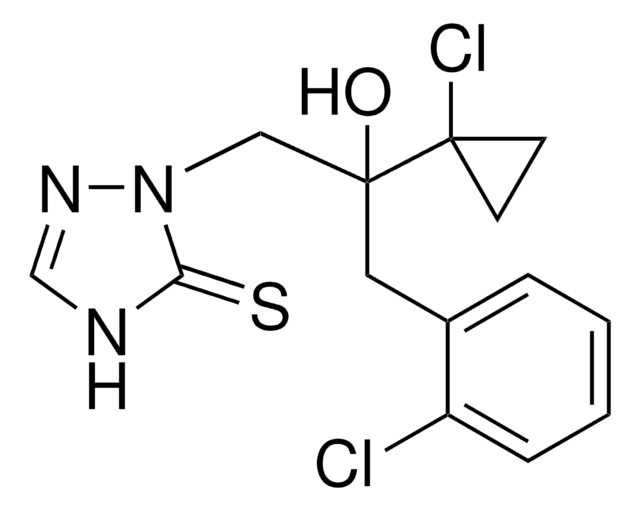49107-U
552.2 Haloacetic Acids Mix
certified reference material, 2000 μg/mL each component in methyl tert-butyl ether
About This Item
Productos recomendados
grado
certified reference material
TraceCERT®
Nivel de calidad
Agency
EPA 552.2
Línea del producto
TraceCERT®
CofA
current certificate can be downloaded
Características
standard type calibration
envase
ampule of 1 mL
concentración
2000 μg/mL each component in methyl tert-butyl ether
técnicas
HPLC: suitable
gas chromatography (GC): suitable
aplicaciones
environmental
Formato
multi-component solution
temp. de almacenamiento
2-8°C
Categorías relacionadas
Descripción general
US EPA 500 Series methods are analytical methods for identifying and quantifying organic contaminants such as volatile organic compounds (VOCs), pesticides, synthetic organic compounds (SOCs), and trihalomethane disinfection byproducts (THMs) in raw source water, finished drinking water, and drinking water at all stages of treatment.
Aplicación
Otras notas
Información legal
Analito
Palabra de señalización
Danger
Frases de peligro
Consejos de prudencia
Clasificaciones de peligro
Flam. Liq. 2 - Skin Irrit. 2
Código de clase de almacenamiento
3 - Flammable liquids
Clase de riesgo para el agua (WGK)
WGK 3
Punto de inflamabilidad (°F)
-27.4 °F - closed cup
Punto de inflamabilidad (°C)
-33.0 °C - closed cup
Equipo de protección personal
Eyeshields, Gloves
Elija entre una de las versiones más recientes:
Certificados de análisis (COA)
It looks like we've run into a problem, but you can still download Certificates of Analysis from our Documentos section.
Si necesita más asistencia, póngase en contacto con Atención al cliente
¿Ya tiene este producto?
Encuentre la documentación para los productos que ha comprado recientemente en la Biblioteca de documentos.
Nuestro equipo de científicos tiene experiencia en todas las áreas de investigación: Ciencias de la vida, Ciencia de los materiales, Síntesis química, Cromatografía, Analítica y muchas otras.
Póngase en contacto con el Servicio técnico
